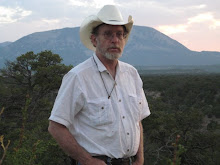In as much that literary criticism is an art and not a science, then the statement -- Shakespeare is the greatest writer of all history -- can be said to be a subject fact. Among the urban literary critics of today it is often fashionable to say that Shakespeare is just a dead old white man who no longer has anything to say. I would disagree with this theory. It can be shown that no other writer has informed what we are as Americans and really all the peoples of this planet. Or as Harold Bloom wrote in his book, The Invention of the Human Being, “We need to exert ourselves and read Shakespeare as strenuously as we can, while knowing that his plays will read us more energetically still.”
When we think of young love we think of Romeo and Juliet.
In his inaugural speech President Obama said, “this winter of our hardship." Shakespeare had Richard III say in his opening lines, "Now is the winter of our discontent." President Obama is educated in Western thought and he would know this line and he used it the same way Shakespeare used it.
Now is the winter of our discontent
Made glorious summer by this sun of York;
The House of York has regained the throne. The House of York is now the shining sun. Long live the King. President Obama and the Democrats are bringing warmth to the dark cold season of the Bush administration. A historian or future playwright will speak to the validity of this allusion.
So again. Why Shakespeare? Because--if we know Shakespeare then we can understand what motivates people.
If we read Macbeth, Richard III or Henry the VI then we can understand the evil of corrupt and weak governments.
In watching Henry V we will see the duality of war in our culture and understand that it is both heroic and devastating. We can gain knowledge of leadership and motivate ourselves and others to higher goals. “Once more into the breach, dear friend, once more, or close the wall up with our English dead.”
Our role in nature from As You Like It--“and this our life, exempt from public haunts, finds tongues in trees, books in running brooks, sermons in stones, and good in everything.”
How we relate to race and religion can be seen in Othello and The Merchant of Venice.
And I will say in Shakespeare’s plays the battle of the sexes was fairly fought and not always won by a man.
Perhaps as in the last words of Prospero from The Tempest, “let your indulgence set me free.” If it is time to set the old guard free, then let that last old dead white man that you listen to be Shakespeare--hold on to him as long as you can.
When we think of young love we think of Romeo and Juliet.
In his inaugural speech President Obama said, “this winter of our hardship." Shakespeare had Richard III say in his opening lines, "Now is the winter of our discontent." President Obama is educated in Western thought and he would know this line and he used it the same way Shakespeare used it.
Now is the winter of our discontent
Made glorious summer by this sun of York;
The House of York has regained the throne. The House of York is now the shining sun. Long live the King. President Obama and the Democrats are bringing warmth to the dark cold season of the Bush administration. A historian or future playwright will speak to the validity of this allusion.
So again. Why Shakespeare? Because--if we know Shakespeare then we can understand what motivates people.
If we read Macbeth, Richard III or Henry the VI then we can understand the evil of corrupt and weak governments.
In watching Henry V we will see the duality of war in our culture and understand that it is both heroic and devastating. We can gain knowledge of leadership and motivate ourselves and others to higher goals. “Once more into the breach, dear friend, once more, or close the wall up with our English dead.”
Our role in nature from As You Like It--“and this our life, exempt from public haunts, finds tongues in trees, books in running brooks, sermons in stones, and good in everything.”
How we relate to race and religion can be seen in Othello and The Merchant of Venice.
And I will say in Shakespeare’s plays the battle of the sexes was fairly fought and not always won by a man.
Perhaps as in the last words of Prospero from The Tempest, “let your indulgence set me free.” If it is time to set the old guard free, then let that last old dead white man that you listen to be Shakespeare--hold on to him as long as you can.


No comments:
Post a Comment